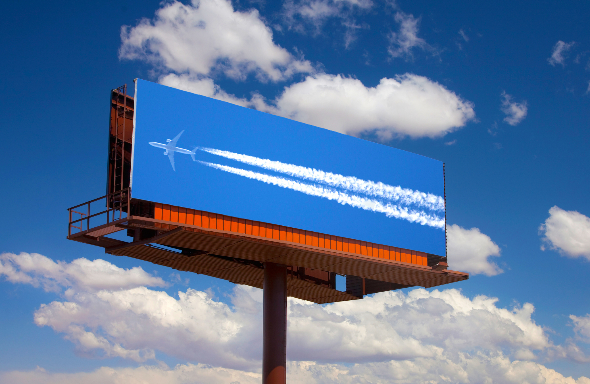What is hotel investment?
Hotel investment is the act of spending money on a hotel to make money from a hotel. The aim is to generate a hotel return on investment (or hotel ROI); money that you can either reinvest in the business or extract as profit.
Hotel investments come in many shapes and sizes. It could be that you’re buying a hotel business or investing in one you already own through things like property extensions and renovations, hotel marketing, employee training and hotel software. In reality the term ‘hotel investment’ extends to any spend that is made with the aim of generating a return.
A hotel investment that delivers the goods
Little Hotelier’s all-in-one booking and hotel management software can deliver an incredible ROI for your small, independent hotel: up to 63x!
Learn moreIs having a hotel a good investment?
Are hotels good investments? Just like any other business, they can prove to be excellent investments, provided they are run well.
Is having a hotel a good investment for you? That question will depend on whether your heart is in it. There’s no two ways about it, owning a hotel is a demanding job – guests are always on site, and your business runs 24/7, so it can be difficult to truly have ‘time off’.
Nevertheless, for those who enjoy being the host, investing in a hotel can prove to be a truly rewarding experience, both professionally and financially.
What is a good return on investment for a hotel?
A ‘good’ return on investment in the hotel industry will change from country to country, city to city, hotel to hotel. At a base level, a good return is simply a return – if you enjoy positive cash flow (money acquired exceeds money spent) you technically run a profitable business.
But most hotel owners will be looking for something more significant. Generally speaking a return of 6%-12% per year is considered good in the hotel industry.
Top strategies to increase hotel ROI
Increasing knowledge and making smart investments is crucial for B&B operators. Prioritising your investments correctly will ensure your budget spend is contributing towards increased revenue and occupancy rates.
Here are four hotel investment strategies you should be investing your money in…
1. Quality Bed And Bedding
At a Bed and Breakfast, guests have certain expectations, the ‘bed’ is number one.
The minute you close your guest’s door after showing them their room, you can almost guarantee they will be jumping on the bed to test it out. Quality of sleep cannot be underestimated when thinking about your online reviews. Guests consider it very important when they pass feedback to their peers so you want their verdict to be along the lines of “The bed was like floating on a cloud!”.
Putting your money towards a premium mattress will never be a business move you’ll regret. A bed lasts around five years, which is more than enough time to make your money back with happy, well rested guests, spreading the word of their fantastic stay.
Accompany your heavenly mattress with some quality sheets made from 100% Egyptian or Pima cotton and thick fluffy towels in the bathroom.
Bedding also works well as a tool for decorating B&B rooms, but remember to keep it simple so you get the best return on your investment without it going out of style.
2. Unique B&B Signage
Signage is your chance to advertise to passing guests who haven’t yet booked their accommodation for the night. Dedicating a proportion of your budget towards signs will improve walk-in bookings and give your B&B brand a facelift.
Invest in distinctive and customised signage that clearly represents your availability and image.
3. Connecting To Online Travel Agents
Partnering with a variety of online travel agents is necessary for B&Bs to connect with global customers. With their scale and global reach OTAs provide hotels with a cost-effective way to increase bookings on a pay-per-performance basis. This is why their commission rates should be seen as a smart investment for your business.
And the most effective way to navigate the world of OTAs is with the use of a channel manager that will allow you manage your connections through one platform.
With software like Little Hotelier you won’t be charged extra fees when you connect to any of the integrated booking channels. All existing integrations are included and you will only need to invest in a single flat-fee payment model.
4. Staff Or Housekeeping
According to Entrepreneur, 30-40% of innkeepers don’t employ any staff.
This may work for one bedroom properties, but once you reach five to six rooms you should really look into employing extra staff.
Doing everything alone risks stretching yourself too thin, jeopardising time that should be put towards guest experience and working on your marketing strategy.
Look to hire staff that will take over your least productive tasks. For example, if you love the routine of cooking breakfast every morning but are skipping this to clean rooms, hire a housekeeper for a few hours a day!
How to evaluate hotel investment
It’s tough for small accommodation providers. You have a limited budget, and need to be smarter about where you allocate your money.
When thinking about how to evaluate hotel investments, your initial focus should be on creating a budget, as this ensures you have money to invest in the first place.
But how should you plan your budget, and which metrics should you look for to measure your return on investment (ROI)?
When planning your budget, your report should include:
- Fixed costs (eg. rent): No connection with business activity.
- Variable costs (eg. wages): Changes according to business activity.
- Income: Forecasted and other expected revenue.
- Actual costs: The difference between budgeted figures and actual numbers.
If the budget was in line with actual costs, that’s great. Think about how you can further capitalise on it.
If not, then document why you think there was a difference – was it a matter of timing (it will happen at some point in the future), or was it permanent (it won’t happen at any point in the future)?
But without advanced reporting, you won’t be able to calculate your budget, or see the return on your investments.
To manage your revenue successfully, you need to be able to see all your revenue streams – from the online booking websites where you advertise your property, to your marketing and sales.
Without this visibility, you won’t be able to make pricing decisions that are based on one of the most fundamental principles of economics: supply and demand.
How easy is it for you to generate hotel ROI reports of:
- Your best performing booking sites?
- Your direct bookings?
- Your occupancy rates?
- Your income and outstanding payments?
- Which of your promotions (hot deals) work?
Without a reservation system, you will probably be struggling to manipulate data in Excel spreadsheets using formulas. Besides taking up a heap of time, one human error could mess up your whole spreadsheet!
With an online reservation system, it’s easier to slice and dice your data, exporting it if need be. A modern system will display it to you visually and allow you to print it out.
You can spend more time making sense of the data and deciding what to do with it, instead of painstakingly manipulating it in Excel documents.
For example, Little Hotelier lets you generate reports for:
- Average occupancy rate
- Average length of stay
- Average lead time
- Average revenue per booking
- Revenue per available room
- Average daily rate
- Dollar value of cancelled reservations
You can also get a detailed report of your revenue, check-ins, extras, and payments for any date range.
Make sure your all-in-one reservation system can track the revenue-related metrics that matter.
By Dean Elphick
Dean is the Senior Content Marketing Specialist of Little Hotelier, the all-in-one software solution purpose-built to make the lives of small accommodation providers easier. Dean has made writing and creating content his passion for the entirety of his professional life, which includes more than six years at Little Hotelier. Through content, Dean aims to provide education, inspiration, assistance, and, ultimately, value for small accommodation businesses looking to improve the way they run their operations (and live their life).
Table of contents
“We’ve seen a 10-15% revenue increase with Little Hotelier. We had great support and met expectations during training. It’s very easy to manage via mobile app.”
Manager, Kränzel 21






